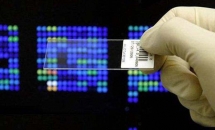The orthotopic transplant of human tumours and derived cellular lines in immune-depressed mice has enabled the study of the molecular mechanisms associated with metastatic dissemination in different tumour types. This exploration has facilitated gene manipulation to assess in vivo the effect of oncogenes and tumour suppressor genes on growth, local invasion, intravasation, extravasation and colonisation of target organs, as well as the role of stem cells in these processes, over a period of only 2-3 months. Furthermore, these animal models may be used to develop new anti-tumour agents, both genotoxic and pharmaceuticals with a defined target. The development of proteic nanoparticles will be introduced for therapy aimed at colorectal cancer in a metastatic model. Nanoparticles enable the researcher to alter the pharmacokinetics and bio-distribution of classic drugs to increase their therapeutic effectiveness and/or reduce their toxicity. Meanwhile, they also increase the therapeutic rate of the drugs coupled with the particle through ligand directing and the selective release of the drug in tumour cells, through endocytosis mediated by receptor. The use of animal models of disseminated disease and nanoparticled systems represents an unprecedented opportunity to improve cancer therapy and to generate new products that can be developed industrially.
Cycle: Challenges of the 21St Century the Voice of Medicine, II
Organized by: Residence for Researchers, Fundació Clínic Barcelona, IDIBAPS and RESA
